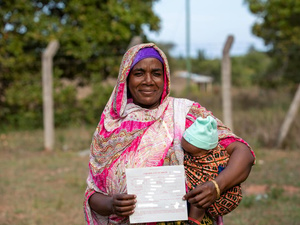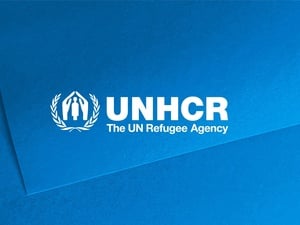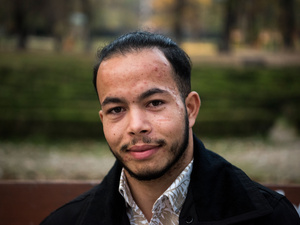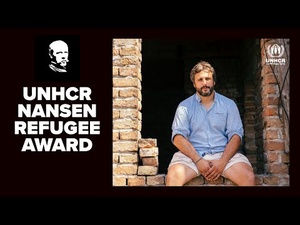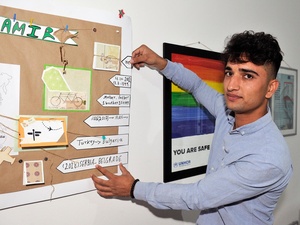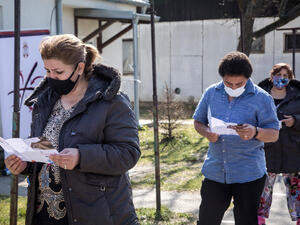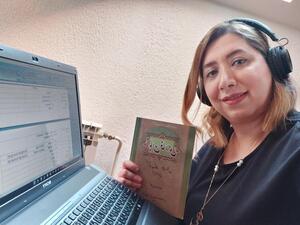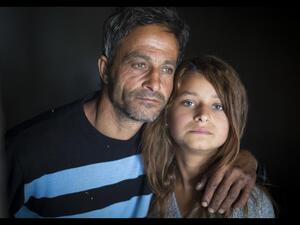Kosovo Crisis Update
Kosovo Crisis Update
Organized Repatriation
Two weeks after UNHCR returned to Kosovo, the agency began the organized repatriation of refugees, taking more than 300 back from camps in the FYR of Macedonia to their homes in Pristina.
The 325 returnees, from Stenkovec 1 & 2 camps north of Skopje, made the return trip aboard buses organized by UNHCR and the International Organization for Migration.
"Returning refugees is always the most satisfying part of our work," said Dennis McNamara, UNHCR's special envoy for the Former Yugoslavia and Albania. "But it is also a major challenge when you have a large refugee population like this one that is so anxious to return home. In just two weeks, we've had to rebuild our programme from scratch and get all of the necessary pieces in place to begin official returns."
Of some 800,000 refugees in regional asylum countries at the beginning of June, more than half have already gone home on their own, marking one of the fastest spontaneous returns of refugees seen by UNHCR in decades. The early returns occurred despite words of caution from UNHCR, KFOR and others that refugees faced an uncertain security situation, heavy damage in many areas and the lack of an international support system. Dozens have been wounded or killed by mines and many have returned to find their towns and villages destroyed.
Kosovo
UNHCR has distributed around 700 tents to returnees in the western town of Pec over the last four days. Hundreds of returning refugees and displaced people are queuing daily at UNHCR's newly opened office in Pec, seeking shelter materials and underscoring the need for accommodation.
Medical workers from Médecins Sans Frontières and local Albanians have begun to operate the Pec hospital, just weeks after it was abandoned by its Serbian staff. The hospital reported that in the last week it treated eight people injured in land mine accidents of whom two men later died.
UNHCR is looking into the condition of Serbs who remain in Kosovo. On Sunday, UNHCR visited an Orthodox monastery in Pec and found that about 100 displaced Serbs were sheltered there. UNHCR is sending relief items to the monastery. Upon request from one of the displaced persons there, a UNHCR team found and brought to the monastery three elderly Serbs who felt threatened by their Albanian neighbours.
UNHCR also has been looking into the situation of the Krajina Serb refugees in Kosovo. Before the NATO action, it was estimated that 5,000 -7,000 Krajina Serb refugees were staying in Kosovo. Many are believed to have left. Several hundred Krajina refugees have been located and interviewed. Eighty percent of them have asked for help to leave Kosovo. UNHCR plans to transport them into Serbia proper, from where the refugees could then make a decision about whether to opt for repatriation to Croatia, settlement in Serbia or resettlement in a third country.
Tension remained high in many parts of Kosovo during the period 25-27 June. On Friday alone, 14 people, mostly Serbs, were reportedly killed in Pristina, mainly in sniping incidents. One of the dead was a professor from Pristina University, three of whose colleagues were killed on Thursday, and who had turned down an offer of protection from KFOR.
UNHCR staff in southern Kosovo have conducted initial assessments in more than 35 villages in Prizren, Djakovica and Suva Reka. Prizren itself is coming back to life at an astonishing pace, with shops and cafés re-opening every day. The town is a magnet for rural returnees who have found their villages uninhabitable. For now, those who have no homes to go to are being taken in and assisted by others, but this generosity may prove difficult to sustain as the number of returnees rises.
The main problems in Prizren concern the minorities remaining there: Serbs and Roma. Serb-owned apartments are being occupied, at least two Serbs have been murdered and around 60 people, mainly Serbs, remain holed up in a seminary in the town centre under KFOR guard. It is not clear how many Serbs remain in Prizren altogether.
Djakovica and Suva Reka are much harder hit than Prizren, with commercial premises extensively damaged and looted or burned. An entire section of the historic old town was burned down as was the town's oldest mosque. Suva Reka is even less well off, in particular in terms of revival of commerce. The situation in the villages varies enormously. Some have limited damage. In others, destruction appears to have been arbitrary and brutal. In the village of Budokova, east of Suva Reka for instance, there does not appear to be a single undamaged house - only 50 of the village's original 220 families have returned.
FYR of Macedonia
A total of 39,600 refugees from the FYR of Macedonia returned to Kosovo from Friday through Sunday, bringing the departures from that country to date to over 155,000.
On Monday, as spontaneous movements continued, UNHCR took 325 refugees back to Pristina by bus, in UNHCR's first repatriation convoy.
UNHCR continues to run aid convoys from Skopje to Kosovo ferrying tents, plastic sheeting, blankets, mattresses, bottled water and hygienic kits.
On Friday, six trucks went to Pristina, five to Pec and four to Prizren. Deliveries were made on Friday from UNHCR's Pristina warehouse to Djakova, Glogovac, Malisevo and Mitrovica, including shelter repair kits and hygienic items.
Saturday, five UNHCR trucks went to Prizren, two to Pristina and five to Pec. At the same time three trucks came into Skopje to replenish stocks of mattresses. On Sunday, four UNHCR trucks went to Urosevac, five to Prizren, five to Pec and 12 to Pristina.
On Monday, UNHCR Skopje sent five trucks to Pec and hopes to dispatch 25 trucks on Tuesday to different destinations in Kosovo. There are also eight incoming trucks of supplies to Skopje on Monday.
Albania
Around 60,500 refugees from Albania returned to Kosovo over the past three days, bringing the overall returns since 15 June to 236,300. Most of the returnees are coming from camps and host families in southern and central Kosovo. UNHCR plans to begin organized repatriation from Albania on Tuesday.
Republic of Montenegro
In the past three days, 15,705 Kosovars returned to Kosovo from Montenegro, pushing to 21,500 the overall total since spontaneous departures began on 21 June. The Yugoslav army remains at the border posts, but the returns have been going smoothly except for one incident in which a Kosovar man was kicked and had his documents confiscated. The man later reported the incident to police.
UNHCR-IOM Humanitarian Evacuation Programme
On Sunday, 48 refugees left the FYR of Macedonia for Canada under the humanitarian evacuation programme of the UNHCR and the International Organization for Migration. So far, 90,030 have departed under the programme.
Participants in the programme have agreed to suspend it in the coming days, and staff in Skopje are concentrating on resolving the cases of over 300 refugees in need of medical treatment abroad.


